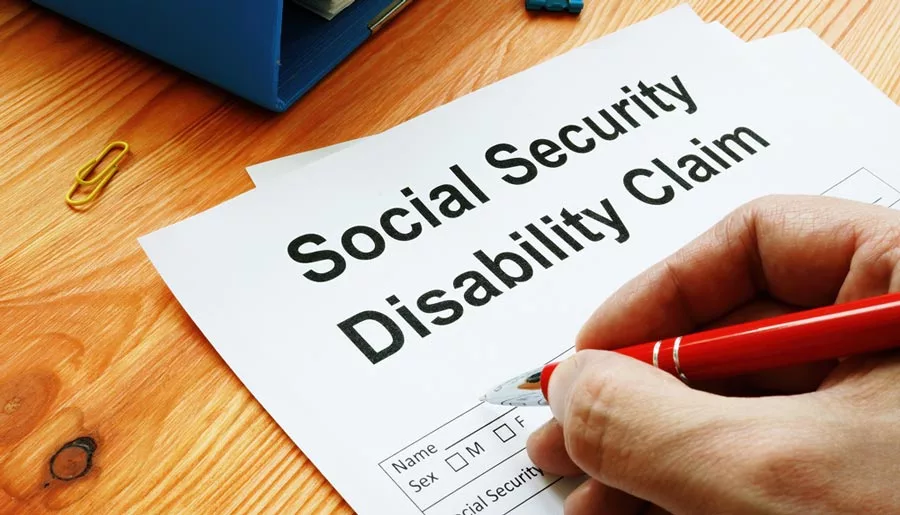Understanding and Getting Help for the Effects of Complex Trauma
While C-PTSD might not be as obvious a disability as someone being blind or needing a wheelchair, it is still a debilitating condition that affects your day-to-day life. Many people with complex PTSD have symptoms that make it hard to maintain relationships and hold a job. With so many struggles it can leave you wondering, “Is CPTSD a disability?”
Complex post-traumatic stress disorder is a disability that currently falls under PTSD. The Social Security Administration recognizes that condition and individuals can receive disability benefits if they are unable to work because of their symptoms. If this sounds familiar from your life, and you’d like to get help, you’ve come to the right place!
Even though CPTSD is a life-long condition, it isn’t something that you have to live with. Many people find that their symptoms are easier to manage with the right type of support – the kind of therapies and programs offered at Catalina.
Keep reading and we’ll take a closer look at what exactly this condition is, why it is classified as a disability, and how the right support at Catalina Behavioral Health can make holding a job and managing relationships easier.
What Exactly is C-PTSD?

Complex post traumatic stress disorder is a diagnosis that goes beyond traditional post traumatic stress disorder symptoms. The Diagnostic and Statistical Manual (DSM) by the American Psychiatric Association does not yet classify CPTSD as its own condition but the International Classification of Diseases does.
Differentiating between these two conditions is important for getting the right diagnosis and PTSD treatment. Generally, C-PTSD is caused by repeated traumatic events that cause a physical and/or psychological response like severe childhood abuse or neglect.
While there are scenarios where this type of trauma happens in adulthood, it is most common in people who have experienced child abuse or other childhood trauma. When C-PTSD occurs in adulthood, it is due to long-term, repeated trauma like domestic violence, detainment, or torture.
Get Proven Support for CPTSD – Call Now!
Getting to Know the Symptoms of PTSD and Complex PTSD
There is a lot of overlap between complex and typical PTSD symptoms. Some symptoms shared by these two mental health conditions include:
- Avoiding triggers or situations that remind them of the trauma
- Detachment from the trauma or forgetting details
- Difficulty concentrating
- Hyperarousal or a state of constantly being on alert
- Sleep disturbances including increased anxiety or nightmares from CPTSD
- Nausea or dizziness when remembering the trauma
- Flashbacks, sometimes followed by an exaggerated startle response
- Losing trust in yourself or the people around you
- Believing that the world is dangerous
- Misuse of drugs or alcohol to cope
- “People-pleasing” to avoid confrontation or tough situations
- Other mental health disorders including depression or anxiety disorders
A big clue to what you are dealing with is the traumatic event that has led up to the diagnosis. In addition to considering the event, some symptoms present with complex PTSD in addition to those already mentioned.
Additional Symptoms Unique to Complex PTSD
There are several symptoms that individuals with PTSD do not have like negative feelings about one’s self and troubles with emotional regulation. Some other symptoms of complex PTSD include:
- Feelings of guilt or shame regarding the past
- Extreme emotional states like anger, persistent sadness, or hopelessness
- Compulsive behaviors like self-harm or substance abuse
- Lashing out at minor criticisms
While these are more likely to occur with CPTSD than PTSD, the symptoms can present with either condition.
What’s the Difference Between PTSD and Complex PTSD?

Both C-PTSD and post traumatic stress disorder are mental disorders brought on by exposure to a traumatic event. While this is far from a complete list, some events that may cause PTSD include:
- Events during war and conflict
- Torture or abuse
- Physical or sexual assault
- Car accidents
- The death of someone close to you
- Losing a baby in childbirth or through miscarriage
- Severe medical issues or physical injuries
Any incidents or traumatic events causing severe stress may cause PTSD. In most cases, though, individuals struggling with PTSD are exposed to a single event or a short-lived event.
By contrast, individuals with complex post traumatic stress disorder experience long-term, chronic exposure to a traumatic event. Often, this series of events occurs in childhood.
When discussing symptoms, there is a lot of overlap between complex and non-complex post traumatic stress disorder. Both conditions have potentially debilitating symptoms that make it harder to function.
However, individuals with C-PTSD that rises to the level of needing treatment often have additional symptoms like negative self-perception and emotional dysregulation. Some other risk factors for developing CPTSD include age, genetic disposition, and a lack of psychosocial support.
CPTSD vs Borderline Personality Disorder
Complex PTSD also shares symptoms with borderline personality disorder. One defining difference is that individuals with CPTSD lack emotional regulation because they are numbing or avoiding triggers or reminders of the trauma.
By contrast, individuals with borderline personality disorder have emotional regulation brought on by real or perceived feelings of rejection or abandonment. In both cases, symptoms may be severe enough to meet the requirements for disability benefits.
Is CPTSD a Disability: CPTSD and Co-Occurring Mental Disorders

Individuals with complex post traumatic stress disorder are also likely to have more comorbid diagnoses. Also called dual diagnosis, this means that they have CPTSD in addition to depression, anxiety, or other disorders.
In cases of dual diagnosis, there is a greater symptom burden. In addition to those conditions mentioned above, those with CPTSD are also at high risk for eating disorders, drug abuse, and self-destructive behaviors.
Seeking mental health support at a facility like Catalina can be beneficial in these cases because it allows for the diagnosis and treatment of both conditions. Additionally, some conditions like anxiety and depression may benefit from medication, which can make managing symptoms easier.
Find Accredited Trauma Treatment at Catalina
Can I Qualify for Disability Benefits Because of CPTSD?
Like with many disabilities, you absolutely can qualify for disability benefits because of complex post-traumatic stress disorder. The Social Security Administration does not have any specific guidelines regarding complex PTSD but they do have PTSD guidelines.
PTSD and PTSS, as well as CPTSD, are classified under trauma and stressor-related disorders. They are both conditions that individuals may be able to receive disability benefits for.
For an individual to qualify for disability benefits for mental disorders, you’ll need to provide proof that the condition impacts your ability to work and lead a successful life. In most cases, this starts with providing medical documentation regarding your PTSD diagnosis.
Getting the Right Paperwork in Order for Disability Claims
You’ll also need to provide background information on work, skills, education, and work-related impairment, for the SSA to determine if your condition substantially limits your ability to work. Additionally, they may ask if you’ve treated your CPTSD with medication, therapy, or other techniques such as EMDR that can help with complex trauma.
Some individuals with CPTSD have marked limitations. This means that you can function independently, but there is still some level of functional impairment that makes efforts inconsistent. Others have extreme limitations, which can make it almost impossible to hold a job and manage CPTSD symptoms.
Can I Lead a Normal Life with Complex Post Traumatic Stress Disorder?

For some people, leading a “normal” life with CPTSD is a struggle. CPTSD can even be a permanent disability in cases where symptoms are severe. This Clinical Psychology Review shows that compared to individuals with PTSD and non-PTSD individuals, those with CPTSD have significantly lowered qualitative capacity in the workplace.
There is a lower quantitative working capacity compared to PTSD patients as well. Some areas that you may struggle in include remembering and applying information, adapting behaviors and emotions for a work setting, and maintaining a steady pace or concentrating at work.
Outside of the workplace, it can be hard to develop social relationships, and partnerships, and even get along with friends and family. The negative thoughts and behavior patterns common in people with CPTSD make it hard to maintain healthy relationships.
Fortunately, with the right course of treatment, managing this difficult condition can get easier. That’s where Catalina can help.
Is There Treatment for Complex PTSD?
Complex PTSD is a chronic, lifelong mental illness that can interfere with major life activities. However, some people with complex PTSD go on to live relatively productive lives, especially with the right help.
The first step in getting treatment is finding a qualified healthcare provider that can provide an accurate diagnosis. This is often done during an intake appointment where you will be asked questions about the traumatic event, symptoms you are experiencing, family history, and other relevant information.
At Catalina Behavioral Health, we can begin the process over the phone and allow you to get a sense of whether treatment is indicated and what level of care will be appropriate if so.
From there, a medical treatment plan can be put into place. Often, this includes individual therapy with a focus on trauma and group therapy to provide social support and lifestyle changes.
Medication Management for Symptoms of CPTSD

Medications may also be prescribed to deal with symptoms of CPTSD like anxiety or depression. Even though it won’t treat CPTSD, medication is a good option for making symptoms more manageable.
Individuals with severe symptoms also might consider inpatient treatment at places like Catalina. Inpatient treatment has the advantage of giving you a safe place to focus on healing without external stress, particularly if you have severe symptoms like flashbacks or substance use.
You’ll also have social support through group therapy, something that is instrumental as you work on forming healthier relationships. Furthermore, residential treatment ensures you can work on learning tools to help with CPTSD before you get back to the real world.
Confidential Trauma Assessment – Reach Out Now!
CPTSD and Relationships
Individuals with complex post-traumatic stress disorder often struggle with relationships for many reasons. They often have interpersonal problems that make disagreements common and managing work or personal relationships hard.
Additionally, people with CPTSD tend to distrust others and lack emotional regulation. Both of these are important when handling relationships.
Managing CPTSD in the Workplace
According to the Americans with Disabilities Act, C-PTSD is a mental health condition and employers must provide reasonable accommodations for it. There are also protections regarding discrimination, harassment, and workplace privacy.
Some reasonable accommodations for individuals with complex post-traumatic stress disorder might include reduced hours so they can attend therapy appointments, extended breaks, or being able to work from home. Written instructions, a highly structured setting for work, or working in a quiet area might also be considered reasonable.
Finding the right job for you is also going to be instrumental in successful employment. Social Security offers a Ticket to Work program. This program offers vocational rehabilitation for individuals who might need help developing work skills or finding a job that works for their condition.
Furthermore, some people are approved for supplemental security income. This allows you to earn up to a certain amount and have your income supplemented by additional money from Social Security.
How to File for Social Security Disability for Complex PTSD

The process of filing for social security disability insurance (SSDI) benefits is the same as it would be when filing for a serious injury or other mental disorder. You may also work with someone appointed by the SSA to determine if they can provide disability benefits.
Applying for social security disability involves providing a lot of information. You may be asked questions about when/how the trauma occurred, symptom severity, employment history, and education history.
Sometimes, it may be recommended that you try another type of work. In some cases, individuals with CPTSD are capable of thriving in the right workplace.
After you’ve provided all the information, someone will review your case and decide if you qualify for disability benefits.
What If My PTSD Doesn’t Meet the SSA’s Requirements?
There are instances where people try to claim disability benefits and their claim is denied by the Social Security Administration. In these cases, if you believe that your mental health does disrupt your ability to live your day-to-day life, you can file an appeal.
Typically, you’ll need to request that your case be reviewed again within 60 days of the administration making a decision. If you are still not approved, some additional options include a hearing with a judge, a review of hearing decisions, or filing an appeal with the federal district court.
For individuals pursuing an appeal because of trauma caused by war, Veterans Affairs may be able to help. You can also hire a lawyer for a better chance of being approved, and when authorized by clients to release paperwork, Catalina is happy to assist with complete documentation.
Get Treatment Options for CPTSD at Catalina Now
Get Help Managing Complex PTSD Symptoms at Catalina
With a potentially debilitating condition like complex post-traumatic stress disorder, the right help can make all the difference in managing your daily life. That’s why you shouldn’t hesitate to call Catalina Behavioral Health.
At Catalina, our team will work closely to manage the heightened symptom burden that is common with CPTSD. Life with untreated CPTSD may seem bleak, but there is hope. Reach out and get the help you need to have better quality relationships, succeed in the workplace, and take back control of your daily life today!





